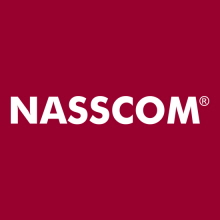“In this environment of proliferation of fake news across social media globally, NASSCOM welcomes the governments intent to formulate a pioneering policy on curbing the spread of false information. This policy will go a long way on ensuring a safe harbor for companies and ensure that fake news is not circulated unchecked.

Keeping in mind the large scale impact of this policy, NASSCOM feels that there needs to be further detailing on the draft guidelines and has shared its feedback. NASSCOM has stated that a holistic relook is required on the issue, keeping in mind that the purpose of the guidelines is to provide due diligence requirements to avail safe harbor and nothing more. Since this framework was initially developed, the obligations placed on the intermediaries have crossed their scope, as they were created merely to provide immunity to the intermediaries from third party data and information subject to compliance with certain conditions.
It is also critical that the intermediaries are not generalized as a single category and are differentiated according to their nature, functions and activities they deliver since not all of them enable users to share content with others or make it available to the public. Several intermediaries who are involved in B2B roles are not fit in the concerns around fake news, and this would unintentionally place the burden on them to make their content available to the public as well. Furthermore, there are several intermediaries who are already regulated under law such as payment based firms are under the purview of the Reserve Bank of India and telecom providers under the Department of Telecommunications. A distinction needs to be made in terms of the magnitude of oversight that is applied to such entities and the diligence that must be imposed on them accordingly.
NASSCOM has also requested for procedural safeguards, and asked for specifications on which government entity can pass the order, along with a specific reason to be provided for any takedown requests. In conclusion, NASSCOM has asked for further clarity on the term ‘knowingly host’ under Rule 3 of the draft, as the term is vague and it places intermediaries in a role of an arbitrator.
NASSCOM will continue to actively work with the Government on formalizing these guidelines and creating an optimal framework that can be conducive for the industry at large.”
